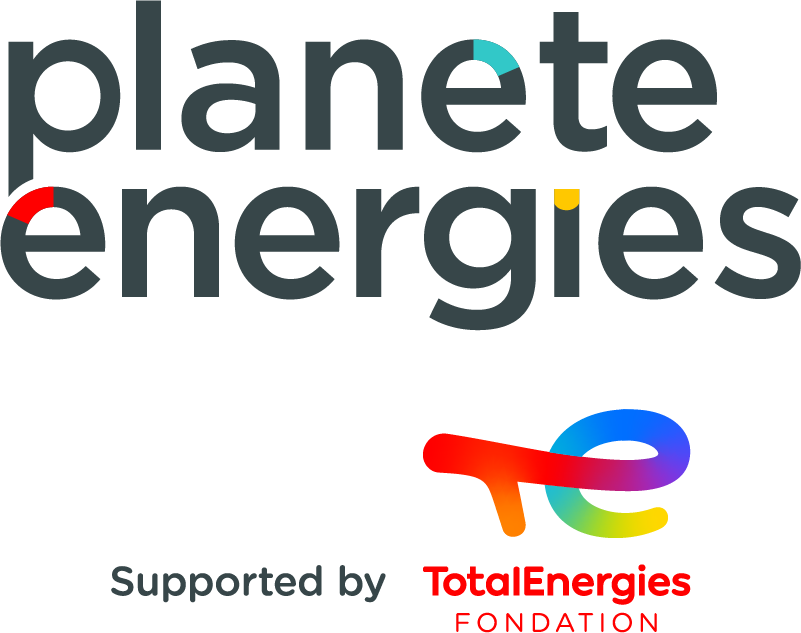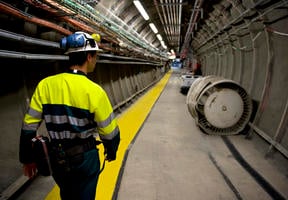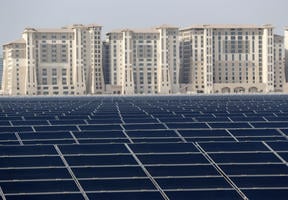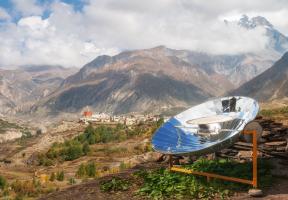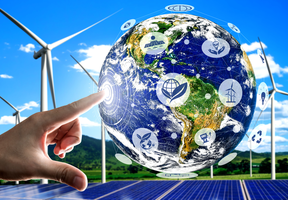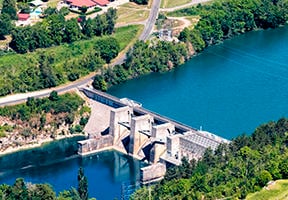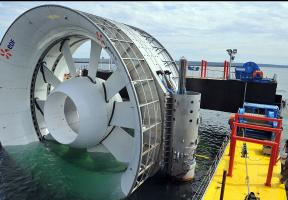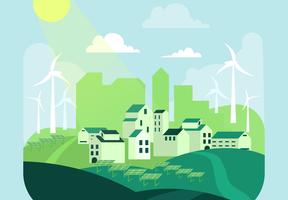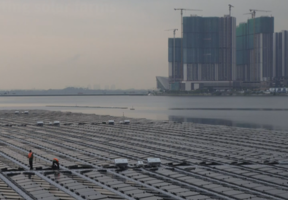COP26: a mixed record
Updated on 09.08.20235 min read
COP26 adopted the "Glasgow Pact" on November 13, 2021. It was considered disappointing by many experts. However, the 197 member countries accepted it, the United States returned to the conference and some encouraging advances for the future were recorded.
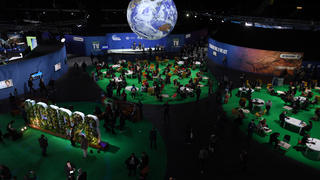
© Paul ELLIS / AFP - A general view is seen of the Action Hub during the COP26 UN Climate Change Conference in Glasgow on November 11, 2021.
Insufficient national contributions
Reminder: the Paris agreement had chosen not to impose global greenhouse gas emission reduction targets, which were generally not met. It asked each country to become aware of the seriousness of and to set specific targets in writing. These are the "Nationally determined contributions". These individual efforts must converge to contain the rise in the average temperature of the planet below 2°C (or even 1.5°C if possible) by the end of the century.
Results: most countries have made efforts, but we are still far from our target. To be on the right track, we should have already begun to reverse the curve of global emissions by 2020, then continued to reduce them sharply to reach "carbon neutrality" by 2050 in large regions such as North America and Europe. Finally, between 2050 and the end of the century, we must pursue this objective of carbon neutrality for the entire planet, i.e. no greenhouse gas emissions greater than what the planet can absorb (we speak of " net zero emissions"). With the Glasgow objectives, we would be on a slowing but still rising curve by 2030. Obviously, the longer we wait, the more difficult the efforts required will be.
A symbolic progress
Reminder: it might look surprising, but the text of the Paris Agreement never included the words "fossil fuels" or "oil" or "gas" or " ".
Result: the taboo has been broken. The final text of the COP26 finally speaks of the need to "reduce" the use of coal and public support for the exploitation of fossil fuels. India and China, that are very dependent on coal, refused to go further and talk about elimination. Still, this is a small revolution, as the idea of leaving behind fossil fuels is now openly discussed.
Financing "climate justice"
Reminder: less developed countries are asking for help from the most industrialized countries. They argue that the latter have emitted for more than two centuries masses of greenhouse gases that have accumulated in the atmosphere, while the so-called southern countries (Africa, South America, part of Asia) have suffered from underdevelopment. Their populations now aspire to growth. In 2009, at the COP15 in Copenhagen, it was decided to provide 100 billion dollars a year in funding to ensure this "climate justice". Twelve years later, there is still an annual shortfall of about 20 billion dollars.
Result: perhaps the end of the tunnel. The negotiations have been difficult, but a solution could be found as early as 2022. Glasgow has also seen a "first": a few states have agreed to help another state. In this case, France and Germany will participate in financing the energy transition of South Africa, whose production depends up to 80% on coal.
After CO2, methane
Reminder: methane, the main constituent of natural gas deposits, also comes from the breeding of ruminants and agricultural practices, particularly in rice fields. Its global warming is much higher than that of CO2, even though its lifetime in the atmosphere is only 10 years, compared to several millennia for CO2. In total, it generates over 15% of the caused by human activities.
Result: a positive initiative. More than 100 countries, including the United States and the European Union (but not India, China, Russia or Australia) have committed to reducing their methane emissions by at least 30% by 2030.
Agriculture on the edge
Reminder: agriculture is very fragile in the face of global warming. Due to climate disruptions, prices of basic agricultural commodities have already soared, putting the food supply of hundreds of millions of people at risk. The development of a sustainable agroecology is urgent.
Result: agricultural issues remained on the sidelines of COP26. This is all the more worrying since poorly controlled agriculture leads to deforestation, which reduces the planet's capacity to capture CO2. The Glasgow pact also makes little reference to oceans, glaciers and .
A good surprise!
While China and the United States have entered into a growing economic and military rivalry, these two countries, which are the two largest emitters, have surprisingly issued a statement promising to work together to strengthen climate action. It remains to be seen whether this will be followed up...
